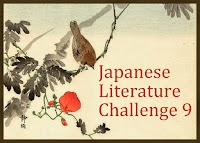by an author whose family name starts with the letter
A B C D E F G H I J K L M N O P Q R S T U V W X Y Z
We all tend to think of the past as “good old times” and easily forget that our ancestors often had much harder and more dangerous lives than we have today. The proof: leafing through any history book we find a succession of bloody wars, terrible pandemics, natural disasters and migration waves. Some historical events and their heroes became the subjects of legends like the story of the rise and fall of the Heike clan in twelfth-century Japan passed on from generation to generation in scattered poems that were assembled only two hundred years later. The Heike Story by Yoshikawa Eiji retells in modern – fictionalised – style the ancient tale of war and peace surrounding the warrior Heita Kiyomori who led the poor clan of the Heike through wars and court intrigues to wealth, power and glory provoking the anger and envy of the rival Genji clan that he almost erased.














